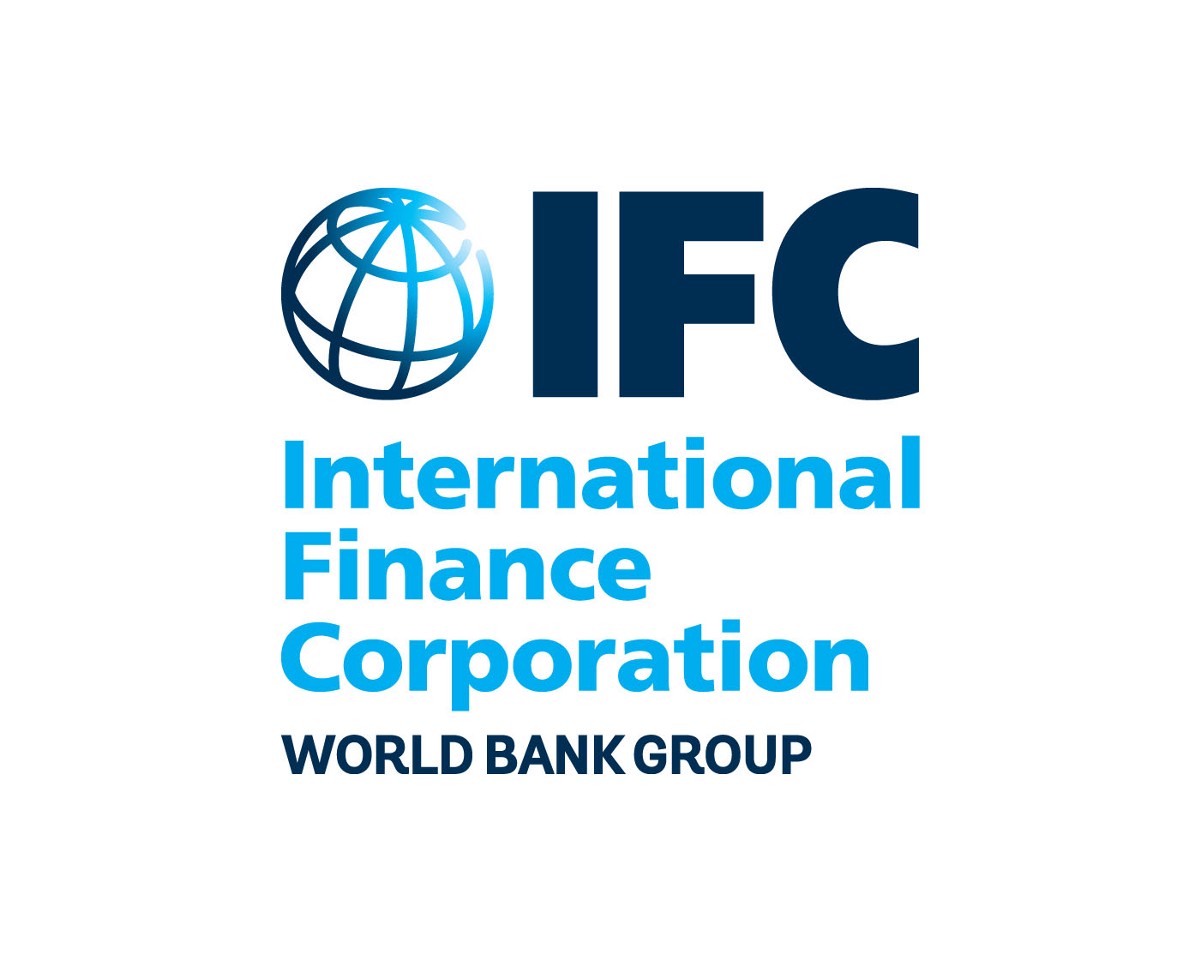E-Financial
Emerging Technologies are Enabling Fintech Companies to Improve Financial Inclusion – Report

Today, fintech companies are making significant progress in promoting financial inclusion through innovative business models, products and use of emerging technologies such as digital identity, Internet of Things (IoT), Artificial Intelligence (AI) and machine learning, says a new report co-authored by IFC, a sister organization of the World Bank and member of the World Bank Group.
The report, Financial Inclusion in the Digital Age, was launched yesterday during Money20/20 Asia in Singapore.
The report is co-authored by Kai Schmitz, Investment Lead for the Global FinTech Investment Group of IFC; Anju Patwardhan, Managing Director at CreditEase Fintech Investment Fund and 2016 Fulbright Fellow at Stanford University; and Kenneth Singleton, Adams Distinguished Professor of Management at Stanford Graduate School of Business.
Over two billion unbanked adults in the world, representing 38 percent of all adults globally, do not have access to basic financial services and another 57 percent have basic accounts, but do not have access to diversified investments, low-cost payments systems, core household and business insurance, or credit.
Financial Inclusion in the Digital Age explores some of the central frictions that prevent greater financial inclusion and financial well-being, and associated technological innovations that are fostering creative new approaches to mitigating these frictions for individuals and small businesses globally.
The report also includes a list of 100 fintech companies globally that are supporting ‘Financial Inclusion in the Digital Age’ across four main “verticals” of impact: payments, lending and related ecosystem, savings and financial planning, and insurance.
These companies are mission-driven but are also focused on providing attractive risk-adjusted returns to their investors. These companies are but one key component of an evolving financial services ecosystem.
“As we evolve towards increasingly digital and open banking systems, I envision many of the companies highlighted in this report as becoming central players in bundled, more inclusive services from major bank and market-place platforms,” says Ken Singleton.
The innovations and models outlined in this report highlight different solutions to three common core problems that limit financial inclusion across countries at different stages of development and different parts of the population: access to financial services, product market fit and affordability.
The report calls on concerted efforts from multiple players: entrepreneurs, regulators, investors, policymakers, large incumbents, and consumers, to sustain the efforts of the growing private sector to improve financial inclusion.
“At IFC, we are committed to expanding financial capacities of individuals and businesses. We believe one way to achieve this is through the use of technology, in particular in financial services,” says Giri Jadeja, IFC Global Head of Financial Innovation.
“IFC’s FinTech strategy is to promote innovative solutions that expand financial services and help banks and other existing providers to expand their markets. This is exemplified by the companies mentioned in the report, and many others we support across the world.”
CreditEase’s Fintech Investment Fund has invested in 26 Fintech companies globally in the last two years. “In the past 11 years, CreditEase has grown from China’s first marketplace lending platform to a full-service Fintech company with a global footprint,” says Ning Tang, CEO and Founder of CreditEase and China’s Fintech pioneer.
“We have innovative products across lending, savings and wealth management, and insurance verticals. As a firm believer of an innovation-driven new economy, we welcome this report that explores innovative solutions for promoting inclusive finance and we look forward to continue contributing to this worthy cause in the next phase of our journey.”
IFC has made financial inclusion one of its top priorities, and to date, the IFC FinTech Group has invested in 38 fintech companies in emerging markets.
Rana Karadsheh, IFC’s Country Manager for Singapore added, “As a leading emerging markets investor, IFC can help build a strong fintech ecosystem together with the private sector, and our presence in Singapore will help widen financial inclusion in the region. We look forward to engaging with more fintech partners in the region and globally, as we support their digital transformation and expansion to new markets.”
E-Financial
NAICOM, NCRIB Commit to Drive Penetration

Mr. Olusegun Ayo Omosehin, the Commissioner for Insurance (CFI), has reaffirmed the National Insurance Commission’s (NAICOM) commitment to strengthening collaboration with the Nigerian Council of Registered Insurance Brokers (NCRIB) to enhance compliance, consumer protection, and broader insurance awareness across the country.

Mr. Omosehin, gave the assurance when he received a delegation from NCRIB, led by its President, Prince Babatunde Oguntade, alongside the incoming President and incumbent Vice President, Mrs. Ekeoma Ezeibe, at the Commission’s headquarters in Abuja, according to a statement.
Welcoming the delegation, the Commissioner commended the Council for its sustained partnership with NAICOM and applauded its role in advancing industry compliance and professionalism.
He congratulated Prince Aguntade, Mrs. Ezeibe, and Mr. Tope Adaramole, appreciating their contributions towards strengthening consumer protection and broker engagement.
The CFI further congratulated NCRIB on the successful passage of the Nigerian Insurance Reform Act (NIIRA) 2025, stressing that enforcement remains the real task ahead. He assured the Council that NAICOM would continue to rely on its collaboration to achieve effective implementation.
Highlighting industry priorities, Mr. Omosehin emphasized the need to expand insurance awareness, improve competence across the market, and ensure operators align with the Digitalization Regulation 2025.
E-Financial
African Parliaments Move to Plug $587Bn Annual Revenue Leakages

Lawmakers from several African countries converged in Abuja on Monday to collaborate on strategies to block the annual revenue leakages of $587 billion, as reported by the African Development Bank (AfDB) in May this year.

This comes as Nigeria’s National Assembly reaffirmed its commitment to establishing the National Assembly Budget and Research Office (NABRO)—an independent, non-partisan budget office designed to support evidence-based budgeting, comparable to the United States Congressional Budget Office (CBO).
The urgency to curb the $587 billion (approximately ₦887 trillion) lost to capital flight across Africa was brought to the fore at the opening session of the 8th Conference of the African Network of Parliamentary Budget Offices (AN-PBO), held in Abuja.
In his keynote address, Tajudeen Abbas, speaker of the House of Representatives, stressed that there was no better time for African legislators to confront the continent’s fiscal and governance challenges through effective and efficient legislation.
According to him, revenue leakages—particularly those resulting from corruption, illicit financial flows, and systemic inefficiencies—must be addressed through enhanced budget scrutiny and oversight.
“According to the African Development Bank, Africa loses over $587 billion annually to capital flight—money that flees the continent through corruption, illicit trade, mispricing, and profit shifting by multinational corporations,” Abbas said.
“Corruption alone is estimated to drain about $148 billion annually, while other illicit financial flows—such as trade malpractices and smuggling—siphon away tens of billions more. This is money that should be building roads in Lagos, equipping hospitals in Nairobi, or improving schools in Accra. Instead, it vanishes.”
He noted that Nigeria presents a cautionary example of both the scale of the problem and the urgent need for reform.
“In our public procurement processes—which account for a significant portion of government spending—Nigeria loses an estimated $18 billion annually to financial crimes, roughly 3.8% of our GDP. These leaks could fund countless social programmes.”
Abbas emphasised that budget leakages undermined the effectiveness of government programmes and must be stopped to ensure better outcomes for citizens.
“That is why we are increasing oversight hearings, audit inquiries, and strengthening anti-corruption legislation. Oversight is essential to ensure that limited resources are deployed for the public good,” he stated.
He also highlighted the lack of institutional capacity in many African parliaments, which hampers their ability to effectively scrutinise budgets and monitor public expenditure.
“Without access to high-quality fiscal data and independent economic analysis, legislators cannot adequately hold the executive accountable on complex macroeconomic issues such as debt sustainability and investment efficiency.”
This, he explained, is precisely the gap that Parliamentary Budget Offices (PBOs) are intended to fill.
Abbas stated that Nigeria was responding to these challenges through reforms aimed at strengthening the legislative ‘power of the purse’ and ensuring greater accountability in public finance.
“One of the most significant advancements is our effort to establish the National Assembly Budget and Research Office (NABRO) as an independent, non-partisan body to support our legislature.
“Let me assure this audience that the National Assembly is fully committed to NABRO’s realisation, full funding, and independence,” he further said.
He added that beyond NABRO, the Nigerian legislature was pursuing a broader fiscal governance agenda: “We are revising our Fiscal Responsibility and Finance laws to enhance budgetary discipline and transparency. We are also empowering our Public Accounts Committees to take decisive action on audit findings.”
Earlier in his remarks, Barrister Kamoru Ogunlana, clerk to the National Assembly (CNA), described the conference as a critical platform for peer learning and capacity building, aimed at institutionalising evidence-based public finance management.
“I encourage us all to use this conference not only as a platform for exchange, but as a springboard for innovation and renewed commitment to fiscal responsibility,” he said.
Representatives from 16 African countries participated in the conference, including Nigeria, Ghana, Kenya, Uganda, South Africa, Tanzania, Namibia, Zimbabwe, Malawi, Mozambique, Liberia, The Gambia, Sierra Leone, Cape Verde, among others.
E-Financial
JustMarkets Unveils Revamped IB Program with Flexible Commissions, Enhanced Partner Benefits

JustMarkets, a global multi-asset broker, presented a new version of its Introducing Broker Program.
The upgraded IB structure is designed to give even higher returns, more partner transparency, commission flexibility, long-term growth, and clearer rules, adapted to the current macroeconomic environment.
Let’s see why this program is so groundbreaking and what benefits it offers to each partner.

Benefit #1. Income for 100% of client trading volume
The standout change is the shift from a fixed-per-lot payout to a percentage-based commission model, allowing partners to earn:
Up to 45% of the spread on Standard, Standard Cent accounts.
Up to 30% of the spread on Pro accounts.
Such a flexible system helps partners to get rewards for 100% of client trading volume, including scalping, intraday, and other short-term strategies often excluded under traditional fixed-lot programs.
Benefit #2. Higher spreads in times of market volatility
Under the percentage-based model, spreads can increase during periods of market volatility. As a result, commissions will increase, too. Regardless of what traders prefer: gold, oil, Forex, or digital assets, partners can benefit directly from market movement, which makes this program exceptionally profitable during active trading conditions.
Benefit #3. No longer bound by strict MTP rules
Perhaps the biggest frustrations for IBs have been the Minimum Trading Point requirement, which filters out a huge portion of eligible trades. JustMarkets has fully removed it, meaning every completed trade went straight to the partner earnings. This creates a better, more predictable revenue stream, especially valuable for high-frequency traders.
Benefit #4. More tools, transparency, and rewards
JustMarkets has also improved its Partner Area with real-time reporting tools, updated commission details, and full visibility into client spreads directly in the trading terminal. This change aimed to build more trustful broker-traders and broker-partners relationships by showing exactly how commissions are calculated.
To further support growth, the program offers loyalty rewards worth up to $500,000, including cash bonuses, luxury gadgets, and even cars. Nigerian partners also benefit from naira-friendly deposits and withdrawals, as well as access to marketing assets like banners, landing pages, and analytics.
A program built for long-term partnerships
JustMarkets is strengthening its commitment to partner success with a next-level IB program built for today’s market dynamics. This upgrade removes outdated requirements like the MTP, ensuring that every trade contributes to partner earnings. It also features a flexible, percentage-based commission system, offering up to 45% of the spread for all instruments, from gold and oil to Forex and digital assets.
According to Yasser Mansour, who is JustMarkets Senior Key Account Manager, all these changes were made with partners and traders in mind:
“We did everything to deliver a fairer, more adaptable, and more rewarding partnership model. Our team believes that traders and partners are the heart of every innovation and service we work on. The revamped IB program is a great tool for partners to get new opportunities, grow their businesses, and succeed in highly volatile markets. Our sincere aim is to provide the most transparent and rewarding partnership environment for partners and traders worldwide.”
To start using the JustMarkets Trading app, simply register and download it on your Android or iOS device.

 General News1 day ago
General News1 day agoLBS Described Digital Transformation in Banking, Others as Fueling Nigeria’s Economic Evolution

 News1 day ago
News1 day agoFire Incident: Afriland Properties Attributes Afriland Towers Blaze to Inverter Room Malfunction

 News1 day ago
News1 day agoMTN Nigeria Backs Cloud Accelerator Program with N100m

 E-Business1 day ago
E-Business1 day agoExperts Seek Engagement on AI Adoption for Governance Standards

 E-Business1 day ago
E-Business1 day agoNITDA Empowers 3,600 Teachers Nationwide to Lead Nigeria’s Digital Literacy Transformation

 News1 day ago
News1 day agoPenCom Redesigns Pension Plan, Targets Informal Sector

 E-Financial1 day ago
E-Financial1 day agoWema Bank Introduces Static Wallets, Instant Settlement Features on ALATPay

 General News1 day ago
General News1 day agoTecom and Huawei to Host MiniFTTO Solutions Launch Event in Lagos























